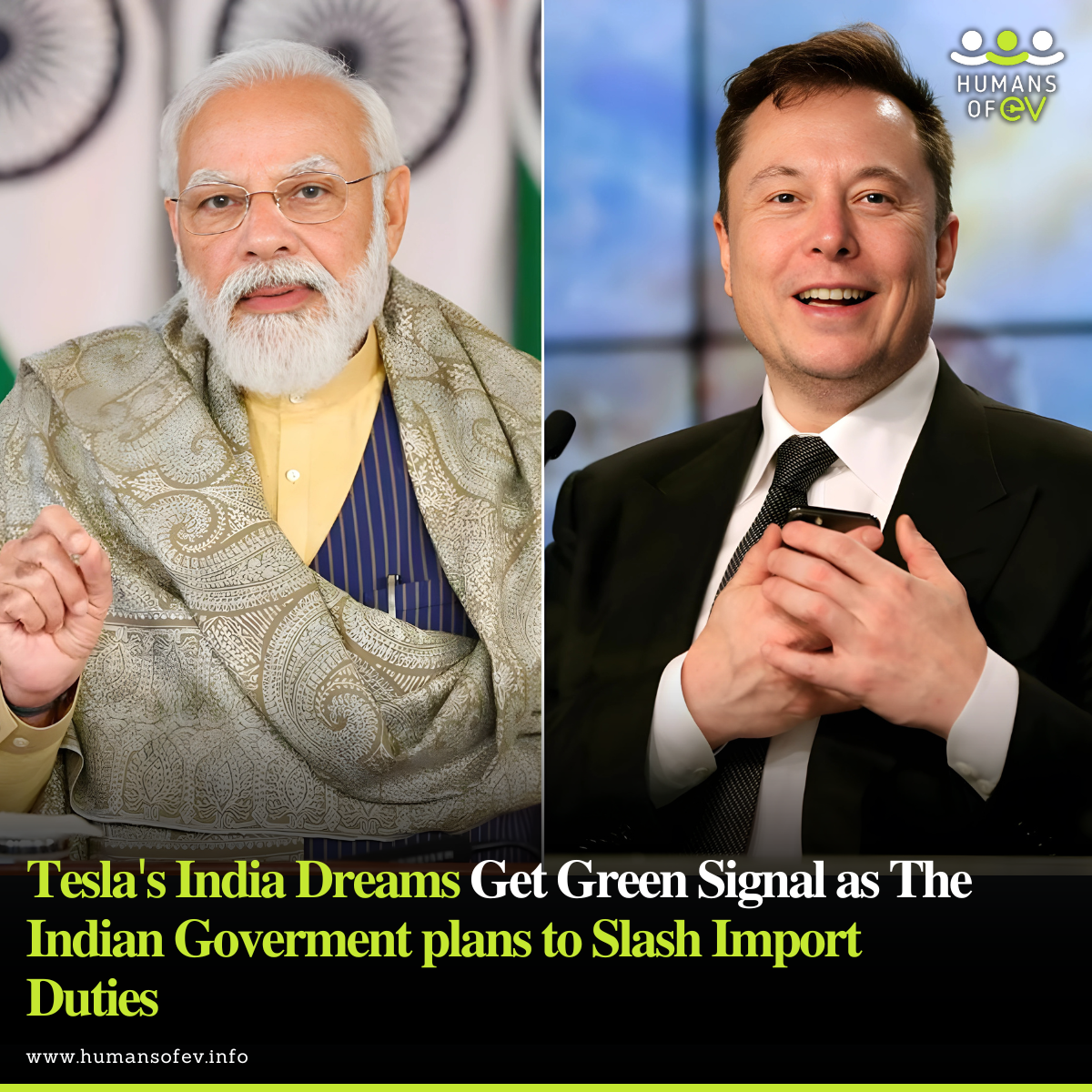
February 25th, 2025
In a bold move that signals India’s commitment to electric mobility, the government has announced plans to slash import duties on premium electric vehicles from a prohibitive 110% to just 15%. The policy aims to attract global EV giants like Tesla while balancing the interests of domestic manufacturers.
The announcement comes after months of speculation following Tesla CEO Elon Musk’s repeated requests for lower import duties to test the Indian market before committing to local manufacturing.
“This is a strategic decision to accelerate India’s transition to clean energy while positioning the country as a major EV manufacturing hub,” said a senior official from the Ministry of Heavy Industries who requested anonymity as they aren’t authorized to speak to the media.
The Duty Dance: Balancing Global Investment with Local Production
Under the new policy, global automakers can import high-end EVs priced above $35,000 (approximately ₹30 lakh) at the reduced 15% duty rate—but with strings attached. To qualify, companies must commit to substantial investments and local manufacturing targets:
- A minimum investment of ₹4,150 crore ($500 million) in local manufacturing
- Progressive turnover targets starting from ₹2,500 crore by the second year, escalating to ₹7,500 crore by the fifth year
- Establishment of local manufacturing facilities within three years
- Domestic value addition of 25% by year three, increasing to 50% by year five
The policy caps the number of vehicles eligible for reduced duty at 8,000 units annually per manufacturer, with standard rates applying beyond this limit.
Mixed Reactions from Industry Players
The announcement has drawn mixed reactions from the automotive sector. Global players have welcomed the move, while some domestic manufacturers express concerns.
Tata Motors, which has invested heavily in domestic EV production, saw its shares dip briefly following the announcement. “We welcome competition, but it should be on a level playing field,” said a company spokesperson.
Meanwhile, industry analysts predict the policy could transform India’s EV landscape. “This could be the catalyst that propels India into the global EV manufacturing arena,” said Rahul Sharma, automotive analyst at Capital Markets Research.
The Road Ahead: Implementation Challenges
While the policy sets ambitious targets, experts point to potential implementation challenges, including the need for robust charging infrastructure and supply chain development.
“Manufacturing is just one piece of the puzzle,” notes Dr. Meera Patel, sustainable transport researcher. “Without concurrent investments in charging networks and battery production, we might end up with beautiful cars but nowhere to charge them.”
The government has indicated it will announce additional incentives for charging infrastructure development in the coming weeks.
As global automakers evaluate this opportunity, industry watchers believe Tesla could be the first to announce concrete plans, potentially triggering a wave of similar announcements from other manufacturers eager to tap into India’s vast market potential.



